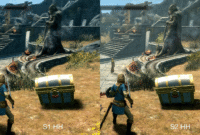**Satoru Iwata’s Iconic Laughter: Tracing Animal Crossing’s Unlikely Journey West** **Late Nintendo president Satoru Iwata once laughed aloud at the thought of localizing the original Animal Crossing—but his response was anything but dismissive. Instead, it was a genuine, almost incredulous, recognition of the daunting challenge ahead. Those inside Nintendo’s inner circle recall it as a pivotal moment—one that embodied not skepticism, but respect. Confronted with the task of transforming a distinctively Japanese social simulation into a global phenomenon, the team braced for a steep climb. What began as near-impossible soon became industry gold—and that moment of laughter marked a turning point in how localization was perceived across the games industry.**  ## **Why Satoru Iwata’s Laughter Spoke Volumes About Animal Crossing’s Localization** Recently, Eurogamer published an interview shining a spotlight on the exceptional trials the original Animal Crossing localization team faced. When Satoru Iwata sat down to review their progress, his reaction—a warm, sustained laugh—emerged not from ridicule, but from profound admiration. For context, the game, known in Japan as “Dōbutsu no Mori,” was built on foundations so uniquely Japanese that the concept of adapting it was both amusing and awe-inspiring. With its real-time seasonal events, dense puns, and conversation steeped in local traditions, the prospect of a Western translation seemed, at first glance, almost Herculean. Remarkably, the developers didn’t just translate—they thoroughly reinvented the game’s social fabric for a wider audience, exhibiting both creativity and resilience. ## **The Animal Crossing Adaptation That Nearly Didn’t Materialize** Casting back to 2001, few Western players likely realized just how extensive and ambitious the localization project truly was. Far from a simple textual conversion, the process resembled a cultural remix on an epic scale. Industry veteran Jason Leung explained to Eurogamer that the localization team worked around the clock, essentially rewriting the entire internal calendar and script to resonate with Western sensibilities. Japanese festivities such as Setsubun were swapped for Halloween and Fourth of July, while jokes and references were painstakingly adapted or reimagined. For the developers, localization grew into redesign—a laborious process notably compressed into mere months. Leung recalls: “Iwata-san just laughed when he saw the overhaul. Then he said, ‘This is what games should be.’” This unusually candid endorsement reflected a philosophy that set Iwata apart, reinforcing that interactive entertainment could—and should—transcend geographical lines. ## **How Iwata’s Perspective Shaped Animal Crossing’s Worldwide Success** Throughout his tenure, Iwata guided Nintendo through transformative times, building on his formidable roots as a coder with an unwavering commitment to player enjoyment. For him, innovation was never insular or niche—it was about widening the circle, making fun universally accessible. In this spirit, the process of localizing Animal Crossing became profoundly influential, eventually placing localization at the heart of Nintendo’s design philosophy rather than at its periphery. From that point forward, Nintendo began designing games like Animal Crossing: Wild World and Animal Crossing: New Horizons with simultaneous, multi-region releases in mind. This shift was notably innovative for its time, and reflected an increasingly customer-centric mindset that prioritized global accessibility from inception. ## **From Industry Curiosity to Cornerstone: Animal Crossing’s Localization Revolution** The ripple effects of Animal Crossing’s successful localization went well beyond Nintendo’s own walls. What was, initially, an unlikely experiment evolved strikingly into an industry template. Competing giants—among them Sony, Ubisoft, and Square Enix—soon established dedicated teams to “culturalize” games, transcending straightforward language translation. Nintendo, under Iwata’s guidance, came to understand that for a game to feel authentic everywhere, it had to be rebuilt—sometimes from the ground up—for each distinct market. In retrospect, Iwata’s laughter reads as a forward-looking signal. By seeing past spreadsheets and schedules, he empowered Animal Crossing to surpass commercial expectations and grow into a cultural beacon. When the pandemic-era Animal Crossing: New Horizons sold over 42 million copies worldwide, it became a digital safe haven—strikingly similar, in its role, to a real-world gathering place. ## **Behind the Curtain: The Remarkably Complex Task of Localizing Animal Crossing** Bringing Animal Crossing to Western shelves required an incredibly coordinated effort. Below is a concise breakdown of the core localization tasks—the kind that would normally span years, but were completed in an astonishing eight months. | Challenge | Description | Localization Approach | |————————–|——————————————-|——————————————————————-| | Language Translation | 40,000+ lines of Japanese dialogue | Extensively adapted for Western nuance, idioms, and humor | | Holiday Modifications | Japan-centric holidays (e.g., Golden Week)| Exchanged for Halloween, Christmas, Thanksgiving | | Player Naming & Letters | Japanese phonetics, script constraints | ASCII character system overhauled and word-wrapping system updated | | Cultural Items | Untranslatable decor and foods | Introduced new, relatable items (e.g., carp streamers became kites)| | Real-Time Clock | Japanese work/calendar logic | Adjusted for local weekends, holidays, daylight savings | ## **The Enduring Legacy of Iwata’s Laughter** Within the ever-expanding narrative of games history, Satoru Iwata’s mirthful response to Animal Crossing’s localization symbolizes an exceptionally clear vision of what interactive entertainment could become. He saw localization not as a mere requirement, but as an incredibly versatile tool for bringing people closer together. That legacy continues to inspire. Today, studios the world over—from indie pioneers to AAA heavyweights—strive for highly efficient, multi-language launches. CD Projekt Red, for example, concurrently localizes blockbuster titles in over 18 languages. Nintendo continues to grow in its global consciousness, ensuring that its flagship releases, such as The Legend of Zelda: Tears of the Kingdom, launch with stories, interfaces, and performances synchronized worldwide. Asked why this all mattered, Iwata offered a simple but notably profound response: “Above all, we make games for smiles.” His laughter, captured in that crucial instant, was more than amusement—it was the very first of those smiles, echoing forward in every joyful connection Animal Crossing fosters around the globe.




